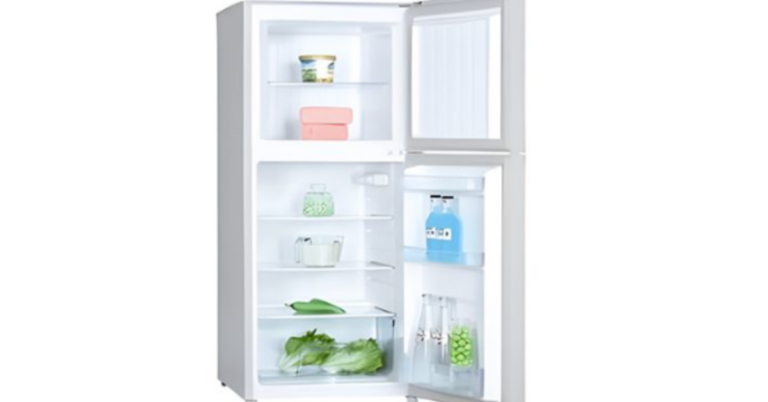Choosing the Right Air Conditioning Units Supplier for Marine and Cruise Applications
In the modern era of global trade, travel, and transport, reliable climate control is a non-negotiable aspect of marine engineering. Whether you’re equipping a luxury cruise ship or a heavy-duty marine vessel, choosing the right Air Conditioning Units Supplier is crucial to ensure optimal performance, passenger comfort, and operational efficiency. When it comes to marine environments, not just any HVAC system will do—these require specialized solutions built to withstand saltwater corrosion, varying climate zones, and continuous heavy use.
This article explores the importance of sourcing the right air conditioning units, the qualities of a trusted supplier, and what industries—particularly marine and cruise—should consider before making a purchasing decision.
The Importance of Marine-Specific HVAC Units
Unlike land-based HVAC systems, marine air conditioning units must operate under extreme conditions. Ships travel through multiple climate zones, often within a short period. The systems installed must manage heat, humidity, and pressure variations efficiently while resisting corrosion and wear due to exposure to saltwater, fluctuating temperatures, and constant vibration.
An HVAC failure at sea can have dire consequences—not only affecting passenger comfort but also the functionality of electronic systems and equipment. This highlights the necessity of working with a specialized Air Conditioning Units Supplier who understands the nuances of marine-grade products and can offer reliable, durable solutions.
Key Features of a Reliable Air Conditioning Units Supplier
Choosing the right supplier means more than picking a brand name. It involves evaluating a combination of expertise, product variety, customer support, and industry reputation. Below are the key qualities to look for in a dependable supplier:
1. Marine HVAC Specialization
General HVAC suppliers might offer suitable solutions for homes or commercial buildings, but the marine environment demands products that comply with maritime standards and certifications. A trustworthy supplier will offer air conditioning units specifically designed for marine and cruise applications, with features like corrosion-resistant coatings, vibration-resistant construction, and sealed systems for humid environments.
2. Product Range and Customization
Marine vessels differ greatly in size and design—from small yachts to mega cruise ships. A quality supplier will offer a wide range of air conditioning units, from compact split systems to centralized chillers, and should provide options for customization based on ship layout, energy requirements, and cooling loads.
3. After-Sales Support and Service
An air conditioning system’s installation is just the beginning. Maintenance, servicing, and technical support are critical for long-term reliability. A dependable Air Conditioning Units Supplier will offer responsive after-sales support, including spare parts availability, troubleshooting assistance, and even technician training if needed.
4. Global Logistics and Timely Delivery
Shipping schedules are tight, and a delay in receiving HVAC components can impact an entire vessel’s operation or refurbishment timeline. Suppliers should have a proven track record of timely delivery and global distribution capabilities. Many reliable marine HVAC suppliers maintain stock at key shipping hubs to reduce lead times and ensure smooth operations.
Applications in the Marine and Cruise Ship Industry
In the cruise industry, passenger experience is paramount. Comfortable cabin temperatures, optimal humidity control, and silent operation are just the tip of the iceberg. HVAC systems also help maintain air quality and support onboard medical facilities, data centers, and crew areas.
Meanwhile, in cargo and container ships, the focus is often on temperature-sensitive goods. Refrigerated containers, control rooms, and engine rooms rely on steady cooling to avoid malfunctions. This calls for robust and reliable systems supplied by an experienced Air Conditioning Units Supplier who understands the sector’s diverse requirements.
Yachts, oil rigs, ferries, naval vessels, and offshore platforms are other sectors that depend heavily on marine HVAC technology. Each has its own standards, requiring tailored solutions that meet stringent safety and efficiency regulations.
Sustainability and Energy Efficiency
Environmental regulations in the maritime industry are becoming increasingly strict. Ship owners and operators are now focusing on energy-efficient HVAC systems that reduce fuel consumption and greenhouse gas emissions. Suppliers are expected to provide units that not only comply with IMO (International Maritime Organization) regulations but also contribute to a ship’s sustainability goals.
Modern marine HVAC systems incorporate features like variable speed drives, smart sensors, eco-friendly refrigerants, and remote control functionality. A leading Air Conditioning Units Supplier should be proactive in adopting and offering such technologies, keeping clients ahead of evolving regulatory demands and energy efficiency standards.
Selecting the Right Partner: What to Ask
When evaluating suppliers, consider the following questions:
-
Do they offer marine-certified HVAC systems?
-
Can they provide references from past marine or cruise ship projects?
-
Do they offer installation and technical support services?
-
Are their products customizable to your vessel’s specifications?
-
What are their warranties, and how responsive is their customer service team?
The answers will help you gauge whether a supplier is just selling a product—or truly partnering in the success of your marine operations.
Final Thoughts
In a world where travel, shipping, and maritime logistics are evolving rapidly, having a reliable climate control system is more important than ever. Whether you’re managing a luxury cruise liner or an industrial cargo ship, selecting the right Air Conditioning Units Supplier can have a profound impact on safety, efficiency, and passenger satisfaction.
A strong supplier understands not only the technical requirements of marine HVAC systems but also the operational challenges shipowners face—from limited downtime and tight schedules to stringent environmental regulations. Investing in quality air conditioning units and choosing the right supplier isn’t just a decision for today—it’s a commitment to the vessel’s future performance and reliability.
With marine environments presenting some of the harshest operating conditions in the world, there’s no room for compromise. Your choice of HVAC supplier could mean the difference between smooth sailing and costly breakdowns. Choose wisely.


